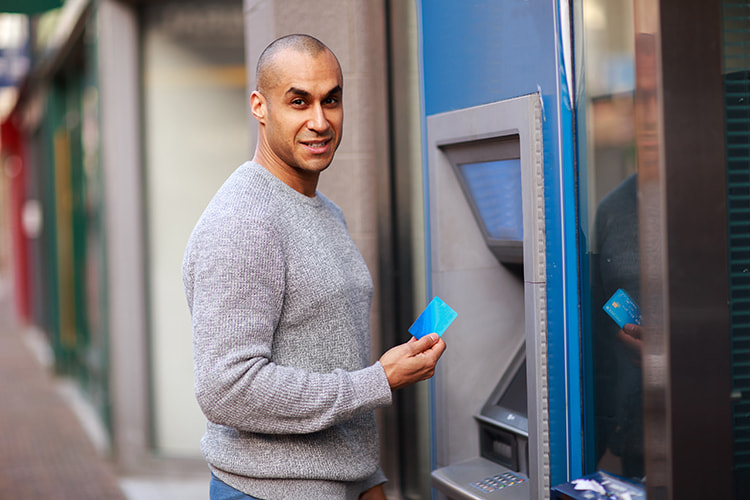
Skimming is a form of identity theft that extracts credit card information when you use the card in a modified public card reader. Skimmers are typically installed on ATMs or any point-of-sale technology and then read your credit card data to defraud you.
How Skimming Works
Skimming can happen when a fraudster modifies a device on an ATM, gas pump, or point of sale terminal to read your card data when you swipe your credit card. Fraudsters then use the data to create fake credit cards to steal from the victim's accounts.
With the advent of more sophisticated technology, skimmers can be as thin as a credit card, making it impossible for authorities to identify them.
Criminals will typically install skimming devices on ATMs with cameras. In addition, the skimming device can be in the form of keypad overlays, which can go on top of the factory-installed keypad. The keypad overlay is capable of capturing your PIN.
Gas stations usually have their card readers outside near the gas pumps away from the checkout counters, making them an easy target to install skimmers.
Types of Skimming
Skimming has become more sophisticated and can happen in the following ways:
ATMs and Point-of-Sale (POS) Terminals
ATMs are the prime location that fraudsters use for skimming devices. The devices are easy to hide so the victim won't notice.
Some scammers place hidden pinhole cameras to record the person's keystrokes as they put in their PIN. Others use keypad overlays attached to the original keypads to record the keystrokes when users enter their PIN.
Skimming devices will store the data and transfer it wirelessly for later use.
Gas Stations Terminals
In gas stations, scammers install skimmers in the internal wiring of the POS machines, making them invisible to card users. The skimmers then record the card details and transmit them electronically to be used to defraud the victims.
Avoid Getting Skimmed
Skimmers can be attached to any ATM and POS terminals to read and later misuse your card details to defraud you. Taking certain precautions when using your credit cards in public places can be the only way you can prevent such crimes.
Tips for ATM and POS Use
- Before inserting your credit card in an ATM, POS, or another card reader, inspect the machine for any unusual crack, crooked, or broken surface that can hold a skimmer.
- Before putting your PIN, pull out the edges of the keypad to check for a keypad overlay.
- Always cover the keypad by hand while putting in your PIN.
- Use ATMs in well-lit areas, preferably indoors, as they are less vulnerable targets.
- Use debit and credit cards with chip technology as they are less susceptible to fraud than magnetic strips.
- Use credit cards instead of debit cards when you have linked accounts.
- Contact your financial institution immediately if the ATM does not return the credit card after completing the transaction.
Tips for Gas Station Use
- When paying in gas stations, choose terminals that employees can see.
- Cover the keys when you key in the PIN.
- Consider paying inside the station to an attendant rather than through the terminals.
Some other precautions you can take to protect your card information from skimmers are:
- Track Your Accounts. To ensure your money is safe, monitor your balances from time to time and inform your financial institution if you locate any suspicious activity.
- Identifying a Skimmer. To better locate a skimmer, it makes sense to understand how they look. Therefore, banks often inform their customers how the card machine should look and when to be suspicious about a skimmer installed in a card reader.
Carefully observe the card reader before use and report to the bank if you suspect a skimmer attached to them.
Takeaway
Identity theft scams are rising to get your credit card details to rob you of your finances. To protect yourself from skimmers, be alert and observant when using a card reader in public areas and report anything suspicious to the authorities.